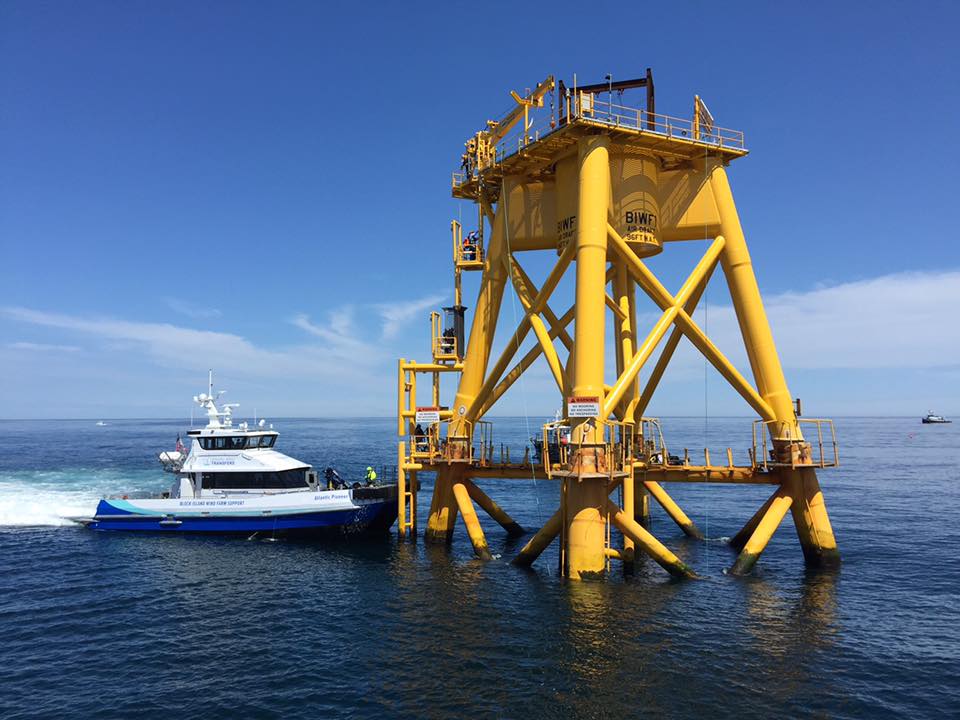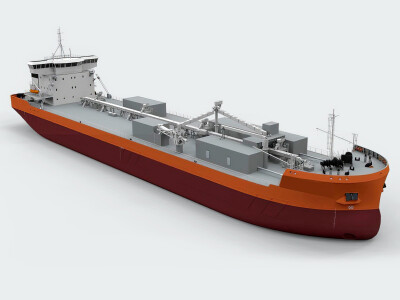Will President-elect Donald Trump, who tried to kill an offshore wind farm in Scotland near his golf course and is a self-proclaimed climate change skeptic, take the wind out of the sails of offshore wind power?
Probably not, observers say.
Trump’s election is viewed as good news for the fossil fuel business, promising less regulation and more opportunities to develop oil and natural gas on federal lands and offshore, and a rebuilding of the coal industry.
Renewables are generally seen as losers in a Trump energy policy. He has suggested dismantling the EPA, reversing pro-renewable energy initiatives of the Obama administration, and undoing U.S. commitments to reverse climate change, which he has called a “hoax,” including tearing up the Paris Agreement.
Investors in renewables like wind power have trembled at this change of direction. While shares of beleaguered coal companies soared more than 80% after the election last week, those of renewable energy companies involved in wind power and solar slid as much as 14%.
But the U.S. offshore wind industry, which earlier this month celebrated the nation’s first offshore wind farm coming on line off Block Island, R.I., will likely feel few repercussions from a new direction in energy policy.
“The simple answer is the U.S. offshore wind industry will continue to move to commercial scale development. Why? Because costs are dropping, U.S. energy decisions are local and offshore wind enjoys bipartisan support” on Capitol Hill, Liz Burdock, executive director of the Business Network for Offshore Wind, wrote on her organization’s website this week.
Her analysis is similar to comments by Dr. James Conca, an energy expert, in Forbes magazine last week.
Burdock said that many of the federal decisions to jump-start offshore wind have already been made, and a new president will not be able to repeal state renewable portfolio standards (regulatory mandates to increase renewable energy production) or any renewable or offshore wind legislation. States have developed enormous control lately in creating markets and policies for U.S. renewable energy, and this isn’t likely to change.
“The Massachusetts bill (the nation’s largest commitment to offshore wind energy) signed into law by a Republican governor, cannot nor will be repealed,” Burdock said, adding that Rhode Island will expand its offshore wind project, and those proposed by other states will go forward.
In addition, Congress renewed the tax credits for wind power last December through 2021, with wide support from lawmakers, which will make repeal difficult and require another act of Congress.
And perhaps most importantly, the high cost of generating power from wind — one of its biggest drawbacks — has been coming down recently. Burdock cited a significant drop in costs of megawatt hours in Denmark as evidence that “offshore wind energy is closer to be competitively viable with onshore wind, solar and fossil fuels.”
Burdock added: “The bottom line is progressive governors and state legislatures in blue coastal states will continue to lead the development of offshore wind. The only difference with President-elect Trump is that they won’t have a federal partner as they would have if Clinton had won.”
She said that the permitting process for future offshore projects could be slowed or delayed for the next two years. “However, Republicans are generally for eliminating regulatory processes and barriers, so if a strong enough business case is made, we may not have to wait for the midterm elections.”
This prognosis should come as a relief to companies in the workboat sector that are currently working on commercial offshore wind projects, or hoping to get involved in this emerging energy sector.





